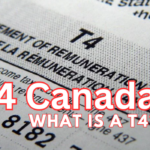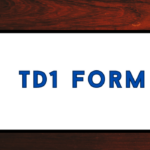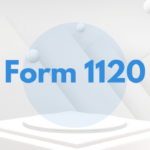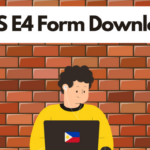In a transformative move, South Africa is poised to replace its Social Relief of Distress (SRD) grant with a Universal Basic Income (UBI) grant, marking a significant shift in the country’s social welfare policy. This transition, driven by the African National Congress (ANC), aims to provide consistent and unconditional financial support to all adults aged 18 to 59, positioning South Africa as a pioneer in the implementation of UBI on a national scale.
SRD’s Shift to Universal Basic Income
The SRD grant, introduced as a temporary relief measure during the COVID-19 pandemic, has been a lifeline for millions of South Africans living below the food poverty line. This grant, currently set at R370 per month, is designed for individuals with minimal income, providing them with essential financial support. However, the SRD system has faced criticism for its limited scope and the exclusionary nature of its digital application process, which often leaves eligible individuals without support.
The ANC’s proposal to transition from SRD to UBI reflects a broader commitment to addressing systemic poverty and inequality. Unlike the SRD grant, which is means-tested and conditional, the UBI will be universally available to all adults within the specified age range, regardless of their income or employment status. This policy shift is expected to be implemented within two years of the new administration taking office.
|
Important Links |
Eligibility for UBI
The eligibility criteria for the new UBI grant are straightforward: all South African adults aged 18 to 59 will qualify for the monthly payment.
This universality eliminates the need for complex means-testing processes and aims to ensure that no one falls through the cracks. By expanding eligibility beyond the current SRD framework, the UBI seeks to provide a more inclusive and comprehensive safety net for all citizens.

Universal Basic Income Benefit
The introduction of UBI in South Africa is anticipated to yield several significant benefits:
- Reduction in Poverty and Inequality: By providing a regular income to all adults, UBI can help lift millions out of extreme poverty, reducing income inequality and improving living standards across the board.
- Economic Stimulus: Direct cash transfers to individuals can stimulate economic activity by increasing consumer spending. This injection of funds into the economy can drive demand for goods and services, potentially leading to job creation and economic growth.
- Empowerment and Dignity: UBI grants individuals the financial autonomy to make decisions that best suit their needs, fostering a sense of empowerment and dignity. This can have positive effects on mental health and social well-being.
- Encouragement of Entrepreneurship: With a guaranteed income, individuals may be more willing to take risks and invest in entrepreneurial ventures, potentially spurring innovation and economic diversification.
- Simplification of Social Welfare: A universal grant simplifies the social welfare system by eliminating the need for complex eligibility criteria and means-testing processes, reducing administrative burdens and costs.

Challenges and Considerations
While the benefits of UBI are compelling, several challenges must be addressed to ensure its successful implementation:
- Funding: Financing UBI requires significant resources. The ANC and supporting organizations, such as the Institute for Economic Justice (IEJ), have proposed various funding mechanisms, including a social security tax, wealth tax, or increased VAT revenue driven by higher consumer spending.
- Inflation Risk: Introducing a large-scale UBI could potentially lead to inflation if not managed carefully. Ensuring that the increase in consumer demand is matched by supply-side responses will be critical.
- Public Support and Political Will: Sustained political will and public support are essential for the successful implementation and maintenance of UBI. Building consensus across different political and social groups will be crucial.
- Monitoring and Evaluation: Continuous monitoring and evaluation of the UBI program will be necessary to assess its impact and make adjustments as needed. Learning from other countries’ UBI trials, such as those in Kenya, Wales, and Ireland, can provide valuable insights.
|
Important Links |
Global Context and Inspiration
South Africa’s move towards UBI is part of a broader global discourse on basic income as a tool to address poverty and inequality. During the pandemic, several countries experimented with emergency income support measures, bringing the concept of UBI into the mainstream. The positive outcomes from these trials have bolstered arguments for the feasibility and effectiveness of UBI.
In conclusion, South Africa’s transition from SRD grants to a Universal Basic Income represents a bold and potentially transformative policy shift. By providing unconditional financial support to all adults, UBI aims to reduce poverty, stimulate the economy, and empower individuals, setting a precedent for other nations to follow. As the country navigates the challenges of implementing this ambitious policy, the eyes of the world will be watching, eager to learn from South Africa’s experience.
Source: theguardian.com





